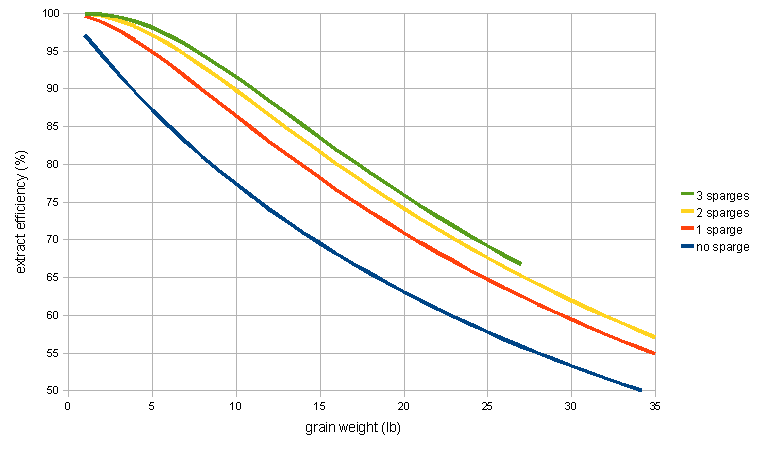I am looking into moving to a larger sized cooler (70 qt instead of 40 qt) and in one the the amazon reviews a user mentiond that with this larger cooler he can do all of his batch sparging in a single step instead of breaking it into multiple steps, thus saving him time for the brewing process.
So other than being able to use less sparge water in a two step process, is a double stage batch sparge process better than a single stage batch sparge in removing sugar for the wort?
So other than being able to use less sparge water in a two step process, is a double stage batch sparge process better than a single stage batch sparge in removing sugar for the wort?




